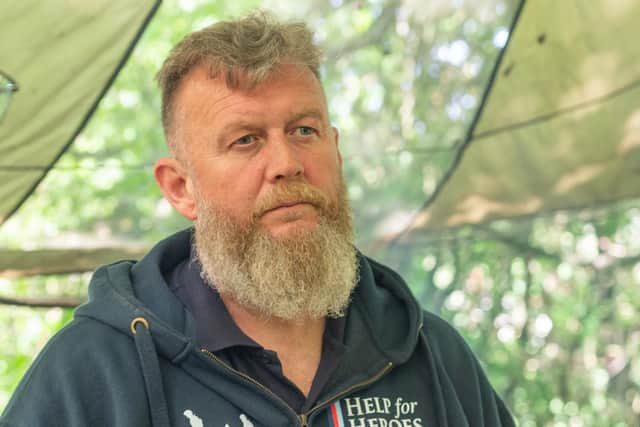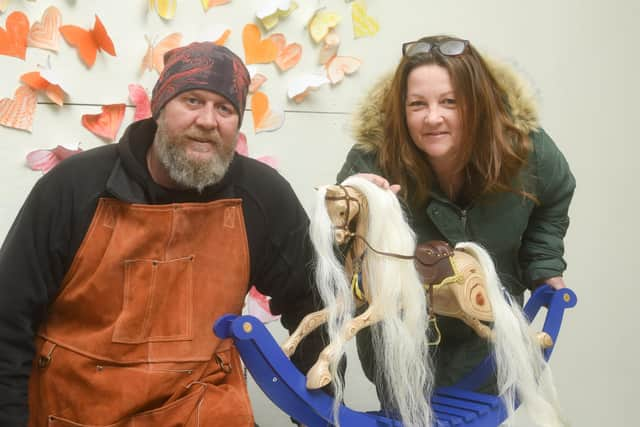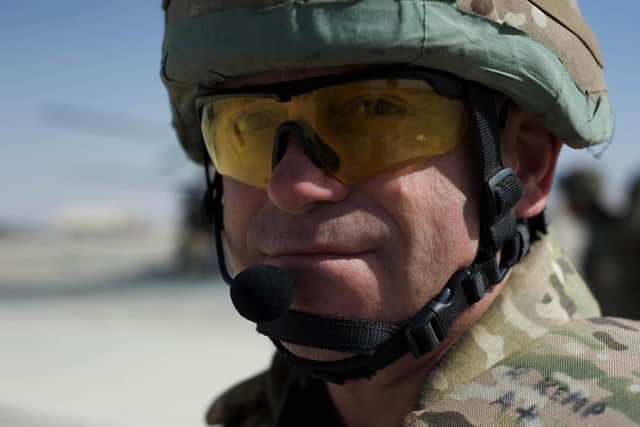Fleetwood ex-serviceman with PTSD joins call to end negative stereotypes
and live on Freeview channel 276
Kev Gray, 51, a former Gunner in the British Army who has PTSD, spoke out after a survey found that 87 per cent of veterans believe inaccurate portrayals on screen are likely to make the public think
military veterans with mental-health issues will do something reckless or dangerous.
Advertisement
Hide AdAdvertisement
Hide AdKev was medically discharged from the army in 1995, suffering with PTSD triggered by experiences in Northern Ireland and the first Gulf War.


PTSD left him repeatedly reliving traumatic events and feeling unable to face everyday situations.
But he said the way ex-service people with PTSD is often portrayed on TV, film and wider media has a negative impact on many veterans.
Advertisement
Hide AdAdvertisement
Hide AdKev, who has raised large sums for charity by making beautifully carved rocking horses and donating them to good causes, said: “For me, this is one of the last forms of discrimination.


"We have a lot to offer, but if TV and film continue to only show us as damaged goods nothing will change.
"When you can’t get a job, or your holiday insurance premium shoots up by £500 when you say you have had a mental illness, it’s just not fair.
"We’re told to talk out about mental health, but it backfires on us.”
Advertisement
Hide AdAdvertisement
Hide AdWhen a programme features the bad guy as a PTSD sufferer it often has a profound effect on Kev.


He tends to avoid people for a while for fear of being judged, it lowers his self-esteem and leaves him feeling embarrassed that that is what people think of sufferers in general society.
New research undertaken by Armed Forces charity Help for Heroes reveals the extent to which veterans and service personnel’s lives are impacted by the inaccurate portrayal of mental-health
conditions suffered by veterans in films and on television.
With storylines often portraying veterans as ‘broken’, angry and unable to fit into society because of mental health issues such as PTSD, the survey found that there was a damaging and false association being created between veteran mental health and dangerous behaviour.
Advertisement
Hide AdAdvertisement
Hide AdIn a new campaign, Help for Heroes is calling on TV, film and the wider media to help redress the balance when portraying and reporting on veterans
with mental-health issues.
The campaign is fronted by actor and documentary maker Ross Kemp, who has portrayed a veteran with mental-health issues on screen, when playing the character of Grant Mitchell, in Eastenders.
He said: “What you see on screen is only one tiny element of what illnesses like PTSD can look like, and not all veterans have mental-health issues. I had no idea, until I talked to veterans who have mental health conditions, just how damaging the on- screen stereotypes are to them.”
The research, carried out for the Charity by YouGov*, shows that UK adults are very likely to select negative words when describing military veterans with PTSD, such as burnt-out (59 per
cent of UK adults), unbalanced (35 per cent), a danger to themselves or others (30 per cent) and explosive (29 per cent).